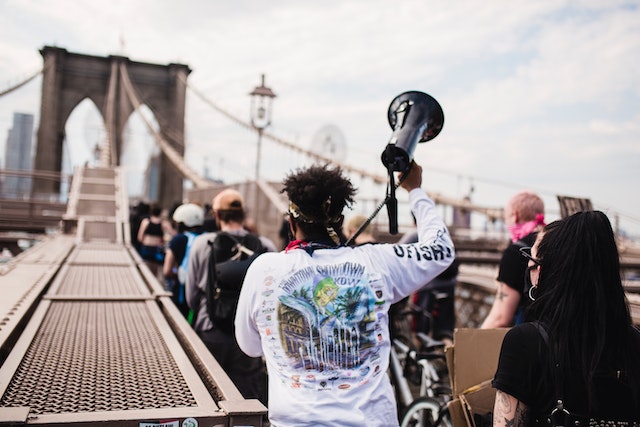Introduction
From the rallying cries of revolutionaries to the reflective ballads of activists, music has consistently played a pivotal role in political movements worldwide. Iconic songs such as “Imagine” by John Lennon or “Amandla!” from the anti-apartheid struggle in South Africa have defined eras, encapsulating the mood and ambitions of millions.
1. The Protest Anthem: Catalyst for Change
Songs like Bob Dylan’s “Blowin’ in the Wind” or Woody Guthrie’s “This Land is Your Land” weren’t mere chart-toppers; they were the anthems of dissent, ringing out in rallies, marches, and gatherings. These songs captured the essence of civil rights movements, anti-war protests, and workers’ struggles, acting as both inspiration and call-to-arms.
2. National Identity and Patriotism
Beyond individual anthems lie national ones – songs that encompass a country’s ethos, aspirations, and history. In times of political campaigns or national crises, these anthems and other patriotically charged tunes play a key role, drawing on and reinforcing shared sentiments of pride, unity, and identity.
3. The Censorship Struggle
Yet, where there is power, there’s resistance. Many regimes, threatened by the galvanizing capability of music, have imposed censorship. From the USSR’s crackdown on punk rock to modern authoritarian regimes monitoring and silencing rappers with revolutionary verses, the stories of these artists symbolize resilience against repression.
4. The International Language of Solidarity
Music’s ability to cross borders is unparalleled. Events like Live Aid or the Concert for Bangladesh weren’t just concerts; they were global calls for solidarity and aid. Similarly, a protest song born in one nation can resonate and inspire activists worldwide, becoming a global anthem of resistance.
5. Social Commentary and Awareness
Modern artists, like Kendrick Lamar with “Alright” or Childish Gambino’s “This Is America”, use their platforms for sharp societal critique. Through their art, they highlight racial disparities, violence, and systemic inequalities, educating fans and listeners about the pressing issues of their times.
6. Politicians and Their Playlists
It’s no longer just artists who harness the power of music. Politicians curate their event playlists meticulously, understanding that song choices can reflect values, aspirations, and the demographic they aim to appeal to. Whether it’s Bruce Springsteen at a rally or the use of folk songs to connect with grassroots movements, music is a strategic tool in modern politicking.
7. Music Festivals with a Cause
Music festivals today often carry a dual purpose. Beyond entertainment, they champion causes – be it climate change, gender equality, or indigenous rights. These festivals become spaces of both celebration and activism, fostering dialogue and galvanizing attendees towards collective action.
8. Case Study: The Role of the Pandrum in Modern Movements
The pandrum, with its ethereal and meditative sound, has found a unique space in contemporary movements. Its calming tones have accompanied peaceful protests, yoga gatherings, and activist retreats. Offering a contrast to often tumultuous surroundings, this steelpan instrument is a testament to how even the most unconventional musical instruments can find political resonance.
Conclusion
As melodies continue to weave through the annals of history, one thing remains evident: music’s power in politics is enduring and transformative. In a world increasingly characterized by noise and discord, may we always find harmony in the songs of change, and may we always listen to the deeper messages they convey.
